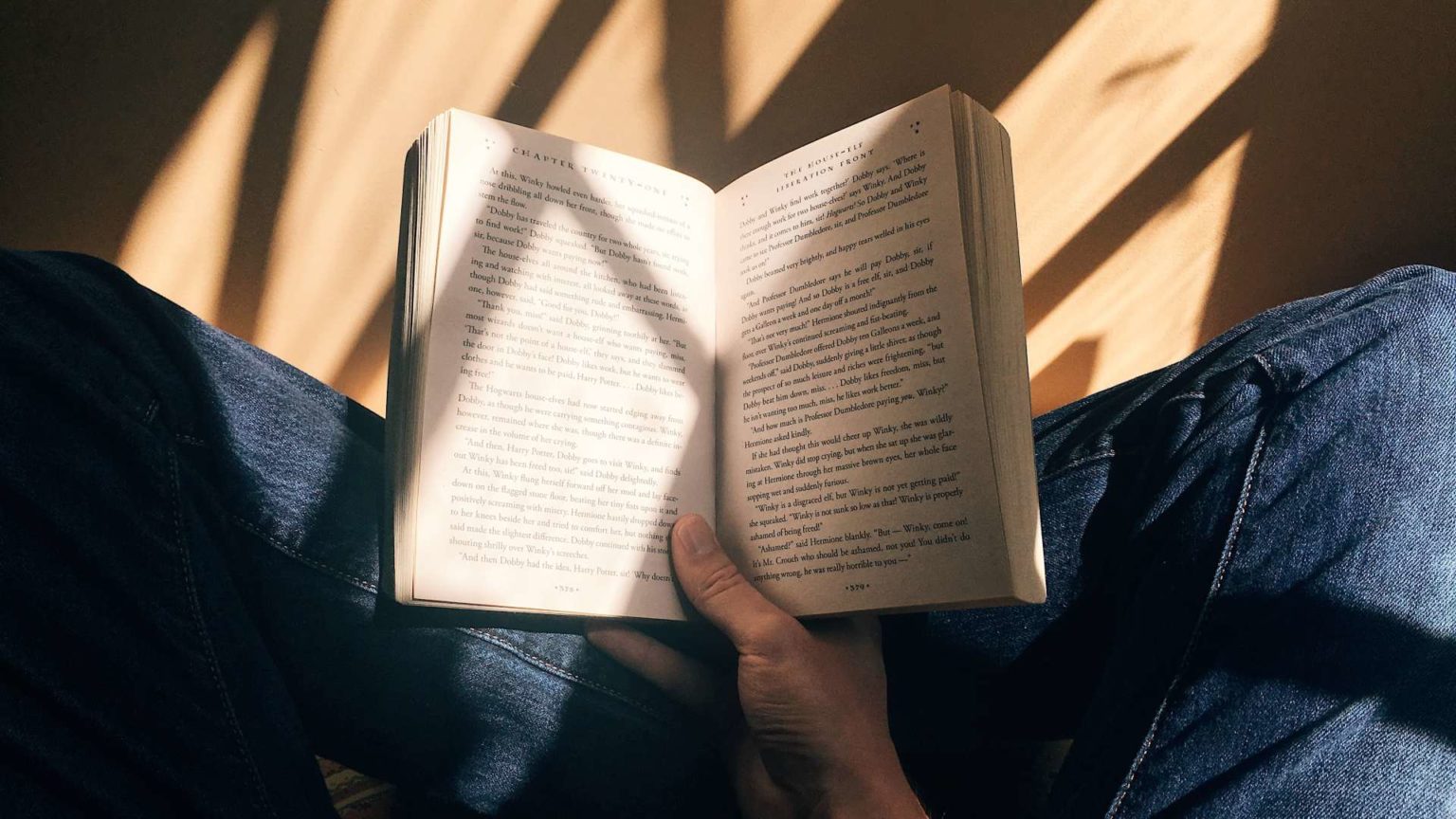Why don’t we read anymore like we used to?
«I do not want to sound apocalyptic or bang on, but it is hard not to see that we live in the midst of a real campaign against silence, against the idea of retreat, meditation, peace of mind»

Unsplash
And those who are not in the habit of reading, who are apparently the vast majority, what do they do with their time? What are they doing with their lives? To go through this world without reading seems inconceivable and yet we know it is the rule, we see it clearly all around us. Anyone who reads a lot is not only, statistically, part of what is odd in the world, he or she is by definition odd, that person who is so hard to figure out. People cannot understand those of us who, to make a long story short, open a book and read every chance we get , be it for hours on end or a fraction of a minute, in an elevator or even while walking down the street. We hear it often when we are children: “Son, go out and do something,” when we felt keenly that we were doing sublime things, far superior to any other activity on hand. Those of us who read, then, take up the opposite stance: we feel radical disbelief before everyone else’s lack of curiosity What can they be thinking of?
My favorite non-readers are the regretful ones, they seem so touching to me, those who sincerely lament not being able to read, who say they have no time for it when nothing would please them more. “Some day I will have time to read Don Quixote”, they say. And one feels like telling them that it’s the other way around and that you have to read Don Quixote right away…in order to have time, in order to live in time much more consciously, in order to face life better armed for it…
When people are asked about the first books they ever read, their discovery of books, their childish daydreams…invariably they turn to the question of fantasy, and it is a commonplace, almost a ritual, to say that “books offered me a glimpse of other worlds”, “reading is what fired my imagination”, “reading made me live more stimulating lives than my own…” I must have been abnormal from the word go, because even though I enjoyed fantasy literature and travel literature and even horror stories, what I most clearly recall is that what books taught me about was …my own life, or just life, life without magic but in all its grandeur. I mean that when I had barely begun to familiarize myself with reality, with my context, books taught me that life was not that but something incomparably broader, deeper, and more elevated. I had nothing of any consequence to find fault with in my circumstances, my town, my high school, my family…but literature made me see a mother transcendence, together with other fine brothers and sisters such as humour, the first inklings of poetry, the sense of belonging, or sheer diversion.
I have a terrible memory but I can identify lots of places with the books that I read there. There is a certain bench in the Retiro that always makes me think of Conversation in Sicily by Elio Vittorini; there is a step on a stairway in Zaragoza that is my Austerlitz, and there was a corner of the School of Arts and Letters, now in smithereens, that was my 2666. Emily Dickinson is a little town in the Pyrenees of Aragon, Herzog is a swimming pool in an absurd village in Toledo, Bob Dylan’s memoirs are the doorway where somebody gave them to me as a gift, and Váramo by César Aira I read at one go while waiting for a person who never showed up, and I so much wanted to keep reading that I felt that I, somehow, had cancelled the date, I had scared off the person I was waiting for with my anxious wish to keep reading…
For my part, the places I remember with the greatest affection are those places in which you can read the most and most luxuriously, with the greatest silence and happiness and the greatest thrill of emotion. My grandparents’ home in Navaleno; the stairways and meadows of the University of Zaragoza, where I managed to read two hundred and fifty books a year, not counting poetry, room 335 in the Residencia de Estudiantes, where I began to read a little less because I suddenly felt obliged to read a little better; a certain country house near Trujillo, the wall where the Zurriola beach in San Sebastián ends, where for one week three summers in a row, clambering up the rocks in search of shade, I gorged myself on ink; a two-story house on the outskirts of Galapagar…
In any case, I myself feel that, although I have my moments, I no longer read the way I did before, even though I have found a job that consists in good measure of reading. At the last booksellers’ conference in March in Málaga, Bernardo Atxaga said that just as police get extra pay for working in sensitive places that could expose them to danger, so should booksellers be paid for carrying on with their work in times like these, when absolutely all the cards are stacked against not only reading but against everything that allows us to create the proper conditions for reading. I do not want to sound apocalyptic or bang on, but it is hard not to see that we live in the midst of a real campaign against silence, against the idea of retreat, meditation, peace of mind. But, aside from that, and with no wish to be unfriendly, I would say that even cultural campaigns are part of a great jamboree of distraction. When I say that everything tends to keep us from reading, I mean everything, even the Feria del Libro (Book Fair), even Babelia [the book supplement of El País]. A few years ago a book called Contra Amazon (Against Amazon) circulated, and do you think, it was a reader who came out in defense of bookshops? No: it was a commentator from a TV series, to whom it did not occur to do a Contra Netflix (Against Netflix)…
Fifteen years ago, my girlfriend at the time read a book on her side of the bed while I read mine on my side. Not much time has passed, but now everything has changed: now that image of two people reading side by side would seem like a symbol of marital failure, of the breakdown of communication, of who knows what… The de rigueur contemporary ritual nowadays is to watch televisión series together, and the more chapters the better; the number of series recommended accumulates the way that the Episodios Nacionales used to do or the books by Pla, that were on our list to read. The sharp descent in the “number of people reading on the Metro” is there for everyone to see, even the most inattentive: there is always a bigger, apparently more appealing temptation. It goes without saying that I do not draw any apocalyptic conclusions from any of this, it’s not something that worries me excessively ,so long as nobody forbids me from reading, but it is discouraging to see that, even for people who always used to read whenever they could, reading is now, it would seem, something you do when there is nothing better to do.

